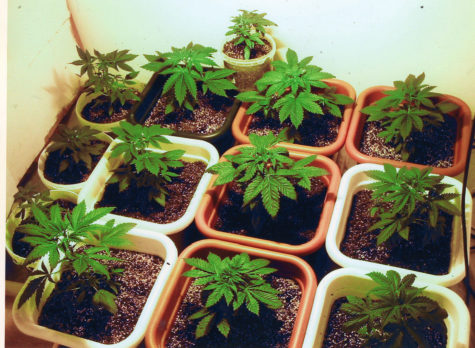 These things always look impossible until they are inevitable. Cannabis is to be legal across Canada starting this summer. Hard at work on winning hearts and minds for the plan, our Prime Minister tells the story of his late brother Michel, who crashed his car as a 23-year-old with two joints stashed in his glove compartment. Their well-connected former-Prime Minister father made the criminal charges “go away”, but the whole thing didn’t sit right with Trudeau—the same episode would have marred the future of many another kid. As it happened, Michel would die in an avalanche a few months later.
These things always look impossible until they are inevitable. Cannabis is to be legal across Canada starting this summer. Hard at work on winning hearts and minds for the plan, our Prime Minister tells the story of his late brother Michel, who crashed his car as a 23-year-old with two joints stashed in his glove compartment. Their well-connected former-Prime Minister father made the criminal charges “go away”, but the whole thing didn’t sit right with Trudeau—the same episode would have marred the future of many another kid. As it happened, Michel would die in an avalanche a few months later.
We Canadians are some of the most rabid pot smokers in the world – 30% of young people use it, at last count—and the government’s stated reason for legalizing weed is to cut off a large income stream from organized crime. It’s a sizeable industry, and it’s not just about smoking. Last summer the sale of cannabis oils (10,000kg) started to exceed the sale of the flower. The new deal will be based on similar limits to those set by Colorado and Washington State. Adults 18 and up can grow four pot plants at home, carry up to 30 grams, alter it into edibles themselves, and so on.
Bogged down for decades in regulatory paperwork, medical cannabis researchers are getting excited about what might now be possible on the research front once things relax around the drug. “A lot of physicians meet patients who know far more about cannabis than they do,” says Mark Ware, who was on the task force that advised the government on the Cannabis Act. “I happily confess that it’s challenging when somebody comes in with papers and evidence, and starts saying, look, there’s this study that was done in Boston in 1965.”
As a drug, pot doesn’t really fit the model we’re used to. It’s not a salt or crystal like most of the medicines we develop. It’s an oil that binds to the fats in our bodies such that metabolites are still being excreted months afterward. In fact, we have no objective test (either in saliva, blood or hair) that can indicate someone’s level of impairment—nothing we can use at a highway stop on New Year’s Eve.
THC pills have been available for 40 years in Canada, but recently the company that makes them has taken them off the market, because nobody prescribes them anymore. That may be because THC alone is only a small part of the entourage of cannabinoids in the plant, each with their own contribution. We have cannabinoid receptors in every system of the body, which explains the broad range of therapeutic effects—on pain, nausea, spasticity, anxiety. Some women use it to treat peri-menopausal effects, and lo and behold, there are uterine receptors for cannabis. That same advantage is a curse, because we can’t seem to develop ways to select for the effects we’re looking for. It would be great to treat neuropathic pain alone, for example, but it’s hard to do without also impairing memory formation.
Green Party leader Elizabeth May describes her riding constituents as “older women in Rotary”. “There’s a constant conversation among them,” she says. “’I’ve stopped taking my prescription painkillers. It’s wonderful. That little gummy bear.’ And then, ‘I never eat the whole gummy bear. I just eat the arm.’ …’Oh, I just eat the ear and I’m fine.’” She worries that, once legalization hits, large corporations are going to shut out some of the smaller craft industries whose product her constituents trust.
As someone with a pre-teen son, I would rather this be happening either a few years ago or a few years from now—in case they get it wrong at first. I’m also kind of allergic and wish it weren’t in my environment so much. But I can get behind the spirit of the thing. Here’s to fighting crime and battling public health problems—and to knowing the difference between the two.
In Oregon where pot has been legal for awhile now, many of the middle aged and older people I know use it in some form or another for some ailment or another. This has become standard smalltalk at community events. Where do you buy your tinctures? What dosage schedule do you use? Of course, I am biased because my brothers grow the stuff (legally in Seattle), but I think legalization is great for science and for consumers, although depending on regulations put in place, small legacy producers can suffer.
Interesting. I wonder whether part of the timing of the legalization is to catch the babyboomers in their peak medical needs phase.
I was on heavy prescription meds (including fentanol patch) and between Cannabis and Natural HGH at https://www.guideyourhealth.org/single-post/HGHbenefitsandsideeffects I was able to get OFF everything. The most Amazing part is it started in the early 80’s and I’ve never felt so great in 38 years. It’s crazy I used to think of Cannabis as a drug but I was stuffing my body full of opiods.